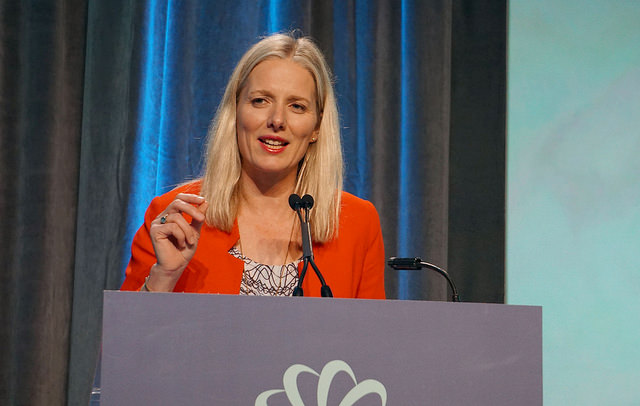BONN, GERMANY — Erin Flanagan, federal policy director at the Pembina Institute, made the following statement in response to the release of the founding declaration on the Global Alliance to Power Past Coal:
“In an effort to speed the global transition to clean energy, today Canada and the UK launched a high-ambition club of partners engaged in the shift away from coal-fired electricity. The Alliance provides a platform for progressive actors to showcase policy leadership, and to offer support to peer jurisdictions seeking to phase out traditional coal-fired power.
“Limiting the role of coal in the global electricity mix is a core requirement for the successful implementation of the Paris Agreement. All OECD countries and regions must decarbonize their power sectors by 2030 to ensure electrification policies generate as much climate benefit as possible. But there are also other reasons to move away from coal: in Canada and around the globe, pollution from coal-fired power causes numerous cases of respiratory illness, cardiovascular disease, and premature death.
“The extent to which the Alliance has a sustaining structure — including staff support, long-term funding and a technical work program — will determine its effectiveness. We encourage the Alliance to outline its immediate policy priorities and urge members to continue cooperating in the spirit of increased global climate action. Through ongoing technical exchange, participants can learn from the expertise of leading sub-national jurisdictions, especially Alberta and Ontario.
We congratulate all participants on the launch of the Global Alliance to Power Past Coal and look forward to ongoing progress towards a climate-smart power sector.”
[30]
Contact
In Bonn:
Erin Flanagan
Program director, federal policy
+1 587-581-1701
In Canada:
Kelly O’Connor
Communications lead
+1 416-220-8804
Quick facts
- Both Canada and the UK have national coal phase-out policies in place: in November 2016, Canada committed to phase-out its coal-fired power by 2030, and, one year prior, the UK announced it would transition away from coal pollution by 2025. Both Canada and the UK will deliver specific policy measures to implement their respective goals later this year.
- In Canada, a national phase-out of coal-fired power by 2030 will avoid 1,008 premature deaths, 871 emergency room visits, and produce nearly $5 billion in benefits between 2015 and 2035.
- Coal-fired power represents over 70 per cent of emissions in Canada’s electricity sector, while providing only 11 per cent of the country’s electricity.
- The electricity sector is responsible for approximately 12 per cent of Canada’s greenhouse gas emissions.
- Currently, there are 35 coal power units across Canada: in Alberta, Saskatchewan, Manitoba, New Brunswick and Nova Scotia.
- According to the Government of Canada, in 2014, coal plants were 10 of the top 17 sources of sulphur dioxide in Canada, 10 of the 14 top sources of nitrogen oxides, and 3 of the top 5 sources of mercury.
Background
Reacts: Pembina reacts to Canada-UK partnership on global transition away from coal-fired power (September 2017)
Report: Out with the coal, in with the new (November 2016)
Blog: Because it’s 2016: Time for Canada to put coal-fired power in the history books (November 2016)
Report: Breathing in the benefits: How an accelerated coal phase-out can reduce health impacts and costs to Albertans (September 2016)
Submission: Modernizing Canada’s electricity systems: A pan-Canadian electrification strategy to cut carbon pollution (July 2016)
Report: A costly diagnosis: Subsidizing coal power with Albertans’ health (March 2013)




